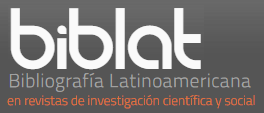What is being learned about pain in the State University of Londrina?
DOI:
https://doi.org/10.5433/1679-0367.2003v24n1p55Keywords:
Pain, Professionals of health, Education.Abstract
The pain attacks everybody sometime in a lifetime and it sometimes causes serious complications, being the main reason for searching Health (Care) Services. The purpose of this study was to verify the knowledge acquired about pain by the students from the health area in the State University of Londrina. In order to do so, it was applied a questionnaire validated with objective questions to the students of the last year of graduation about: general aspects, physiopathology, evaluation and therapies for pain relief. Among the students who were evaluated, 81,5% mentioned that this subject was covered in their academic formation; 53,4% considered pain as the 5th vital sign. Moreover, 50,8% believe that the patient has adequate control over pain. In terms of therapy, 36% claim that the morphine should be used as a last resource in the treatment of pain and 10% could not inform if the distraction techniques can relieve pain. By the analysis it could be noticed that the students have adequate concepts about the physiopathology and evaluation of pain, but wrong concepts about therapies for the pain and with myths about the use of opioids. This theme is extremely important so it is essential to check how it is taught in health graduation courses.
Downloads
Downloads
Published
How to Cite
Issue
Section
License
Copyright (c) 2009 Semina: Ciências Biológicas e da Saúde

This work is licensed under a Creative Commons Attribution-NonCommercial 4.0 International License.
adopts the CC-BY-NC license for its publications, the copyright being held by the author, in cases of republication we recommend that authors indicate first publication in this journal.
This license allows you to copy and redistribute the material in any medium or format, remix, transform and develop the material, as long as it is not for commercial purposes. And due credit must be given to the creator.
The opinions expressed by the authors of the articles are their sole responsibility.
The magazine reserves the right to make normative, orthographic and grammatical changes to the originals in order to maintain the cultured standard of the language and the credibility of the vehicle. However, it will respect the writing style of the authors. Changes, corrections or suggestions of a conceptual nature will be sent to the authors when necessary.
This Journal is licensed with a license Creative Commons Assignment-NonCommercial 4.0 International.

















